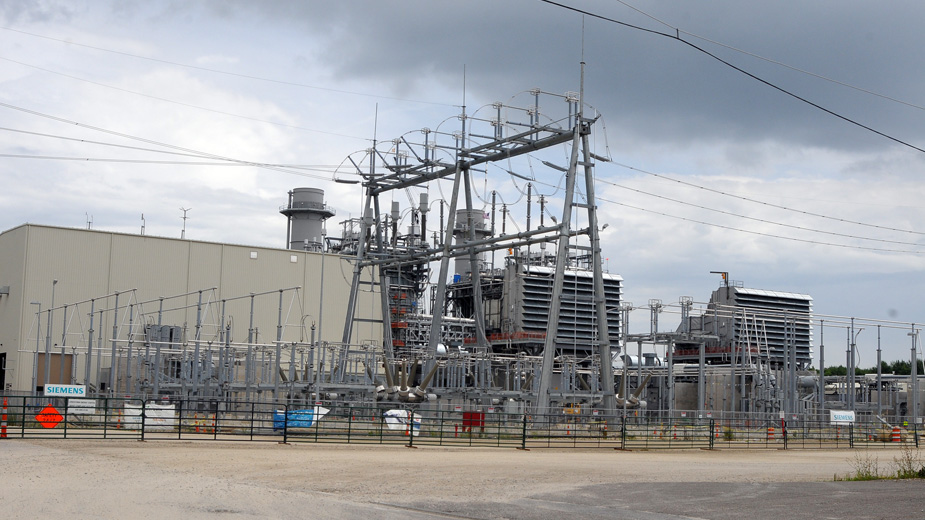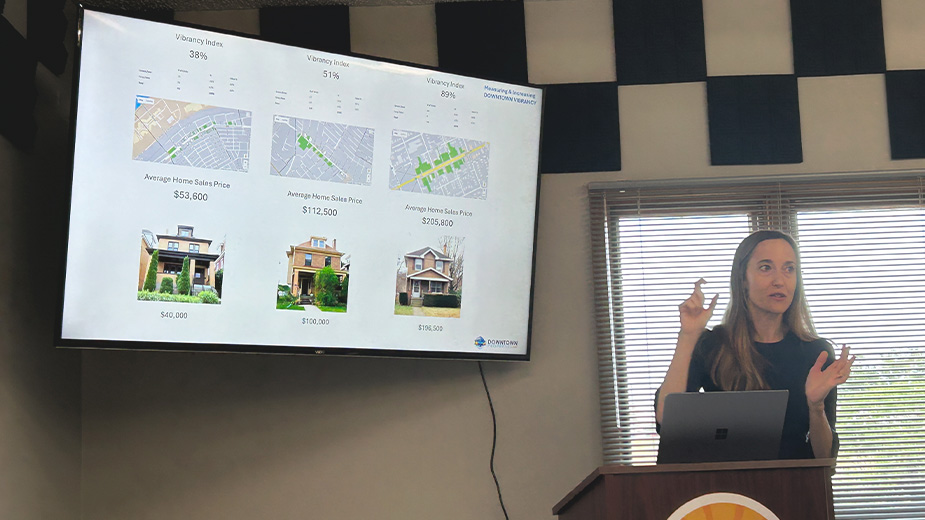$900M 2nd Power Plant Flickers with Legal Battle
LORDSTOWN, Ohio – Should the majority owner of the Lordstown Energy Center reconsider and agree to invest in another project similar in scope eyed for the village of Lordstown, all legal matters affecting construction of a second electrical-generation plant there would be resolved.
So says Bill Siderewicz, president and CEO of Clean Energy Future LLC, which developed the Lordstown Energy Center and wants to proceed with development on a second, $900 million plant on adjoining land along Henn Parkway.
At issue is the Australian investment firm Macquarie Group, which Siderewicz accuses of attempting to quash the second project by refusing to allow the plant, named the Trumbull Energy Center, to be built on land Macquarie owns at the Lordstown Industrial Park.
“They’ve stalled it for a year,” Siderewicz says.
He adds that Macquarie has the first right of offer to invest in the second plant, but has refused to do so. Instead, the firm has impeded construction of the Trumbull Energy Center because it says it would leave it at a competitive disadvantage once the Lordstown Energy Center begins production, which could be late August or early September.
Clean Energy filed a complaint in September 2017 before the Trumbull County Court of Common Pleas to compel Macquarie to sign two documents. The first was an addendum that waives regulations in the park to make way for the new plant and the second seeks sign-off on an option-to-purchase agreement that would allow the Trumbull Energy Center to acquire the land.
Clean Energy has asked for a jury trial and damages of $130 million as a result of the delay.
Although the court ordered Macquarie to sign the addendum, it has not signed the option-to-purchase agreement, which Siderewicz says was part of the original plan when the Lordstown Energy Center was first developed. Macquarie has said it wants to keep the land for potential future development.
Clean Energy has since filed a motion to hold Macquarie in contempt, and the defendants have filed a motion to send the case to arbitration.
Judge Peter Kontos ruled July 20 denying Macquarie’s request for arbitration, a signal Siderewicz sees as a positive development. “He’s saying that it’s not subject to arbitration, it’s subject to me,” he says.
Part of the reason Macquarie has refused to sign on to another project is that the market tanked last year, Siderewicz says. A capacity auction held last year for energy prices in northern Ohio by PJM, the grid provider for this region, showed that prices had tumbled to $78 per megawatt. The prices would go into effect three years from the day of the auction, and any plant in operation during that period would be essentially bound to selling power at that rate.
Since then, however, FirstEnergy Corp. has announced its intent to close three nuclear power plants in northern Ohio and western Pennsylvania over the next three years – the Davis-Besse Nuclear Power Station and Perry Nuclear Power Plant in Ohio, and the Beaver Valley Nuclear plant in western Pennsylvania along the Ohio River. The planned decommissions would reduce capacity and therefore open the market for new electrical generation plants such as the Trumbull Energy Center, Siderewicz says.
Last May, PJM held its annual capacity auction and prices had skyrocketed to $177 per megawatt, presenting a much more favorable environment for investors in this region, Siderewicz says.
“The market looked at this and prices jumped,” Siderewicz says. “It’s changed favorably and should attract investors very quickly.”
Siderewicz says it would be wise for Macquarie to jump at the opportunity while the market is hot and exercise its right of first offer option on the Trumbull Energy Center. Should ground be broken this fall, the plant would be commissioned roughly three years from then and coincide with selling power at the $177 megawatt rate.
“If they would invest, we would drop the complaint for damages,” Siderewicz says.
Meanwhile, Siderewicz says he is hoping Kontos will rule in Clean Energy’s favor related to holding Macquarie in contempt and resolve the land issue soon so the project could move forward.
But should Macquarie continue to block development through a prolonged court battle, Siderewicz says he would consider relocating the Trumbull Energy Center elsewhere.
And, the new site is not in Trumbull, Mahoning or Columbiana counties. “We have a backup site, and it would be unfortunate for Trumbull and Mahoning counties,” he says.
“A second plant would definitely stabilize our school district,” says Lordstown Mayor Arno Hill. Under an agreement with Lordstown schools, the district would receive $800,000 up front on the day the Trumbull Energy Center breaks ground, while the village would share half of any income tax generated from the project.
Projects such as these are indispensible to communities such as Lordstown, Hill says, especially as serious questions loom over the future of General Motors Co.’s manufacturing plant here. “With GM losing its second shift, our revenues go down,” he says. “We need to do everything to keep our services going.”
Hill says he’s hopeful that the issues between Macquarie and Clean Energy Future will be resolved so that work could begin on the Trumbull Energy Center. “I’m optimistic,” he says. “I’m looking for things to be wrapped up by the end of the year.”
Pictured above: The the Lordstown Energy Center is expected to begin generating power in August.
Copyright 2024 The Business Journal, Youngstown, Ohio.



